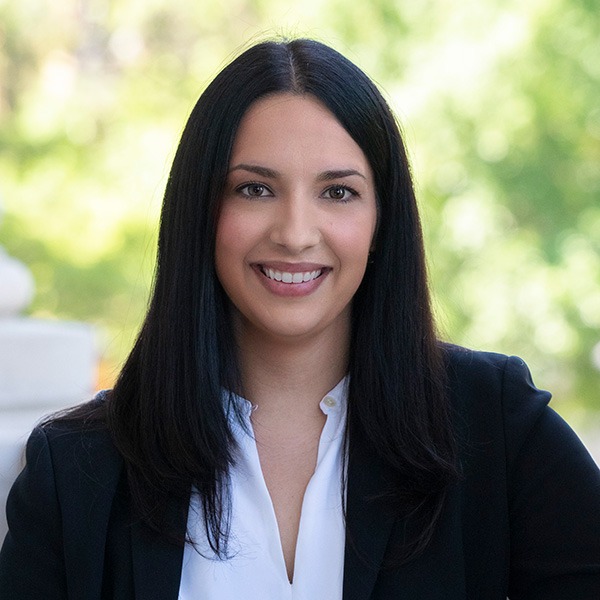Let’s say you are driving to an out-of-town deposition for Client A. You decide to take advantage of the uninterrupted time in the car and call Client B to have a long discussion about case strategy. Is it permissible to provide these services to both Client A and Client B at the same time? Can you bill both clients for the overlapped time spent rendering both services?
Double-Dip? Don’t Slip! Can Lawyers Bill for Overlapping Time Spent on Different Client Matters?

The North Carolina State Bar’s Ethics Committee answers these questions and others in recently published 2022 FEO 4.
The first question is whether the lawyer can ethically provide services simultaneously to two different clients on two different matters. The Bar confirms that such overlap of services is permissible as long as 1) the lawyer can provide the same quality of services he or she would have provided if the service were done in isolation, and 2) as long as the lawyer takes steps to preserve the confidentiality owed to each client (i.e., the lawyer could not make the phone call to Client B if the lawyer is travelling with Client A to the deposition). The Ethics Opinion recognizes that modern-day demands often require this type of flexibility and efficiency, and the ability to carefully multitask promotes diligence and responsiveness in representation of the client (Rule 1.3).
The next question is how the lawyer can bill for his or her time spent providing services at overlapping times. This is where things can get sticky, but the Bar’s Ethics Committee–by way of examples—provides straightforward guidelines for compliance with Rule 1.5(a) (prohibition on “clearly excessive” fees), Rule 7.1 (prohibition on “false or misleading” statement about the lawyer’s services), and Rule 8.4(c) (prohibition on “engag[ing] in conduct involving dishonesty”). The Ethics Opinion uses the following examples to explain the parameters of billing for overlapping time:
The Calendar Call for Multiple Clients:
- If a lawyer spends one hour at a Monday morning calendar call for four different clients, the lawyer cannot bill all four clients for the entire hour spent at the courthouse. Charging for four hours of work when the lawyer completed only one hour of work would be clearly excessive, and it would also be false and misleading. Instead, the lawyer may prorate his or her fee by allocating a portion of the total time spent providing the services among the four clients. If measurable, the lawyer can allocate the portion of work attributed to each client, but the Ethics Opinion also appears to permit the lawyer to allocate an equal allotment to account for the efficiencies of appearing for all four at once, as long as the fee is not excessive and the client has consented to the billing structure.
- In the foregoing scenario, the lawyer may also charge each client a flat fee for court appearance, as long as the lawyer has communicated clearly with the client about the flat fee billing structure, the client has consented to the flat fee, and the fee is not clearly excessive.
Taking Advantage of Travel Time to Get Other Work Done:
- Similarly, if a lawyer spends four hours on a flight to a different city for Client A, but spends three of those flight hours working on brief for Client B, the lawyer cannot charge both clients for the full amount of the overlapping time (i.e., the lawyer cannot charge for seven hours of work for only four hours of time). Instead, the lawyer can bill Client B for the three hours of time spent working on the brief and charge Client A for one hour of travel time. This is based on the rationale that “a lawyer sacrifices the time that could be spent providing legal services to another client when traveling, and thus the lawyer has the option to bill for time spent traveling as a means to be compensated for lost work time. However, a lawyer who is able to work while traveling negates the justification for full hourly compensation based upon travel for a client.” (2022 FEO 4).
- Alternatively, in the foregoing example, the lawyer can prorate the hourly rates for each client, as long as the client has consented to the billing structure and it is not clearly excessive (e.g., charge 50% of lawyer’s travel hourly rate to Client A and 50% of lawyer’s hourly rate for legal services provided to Client B during the time lawyer’s services to each client overlapped). Similarly, the lawyer can charge Client A a flat fee for travel and still bill Client B for the time spent on the brief, as long as Client A has agreed to the flat fee and it is not clearly excessive.
Billing Minimal Increments of Time:
- The last example discussed in the Ethics Opinion is probably one that many of us encounter on a daily basis. A lot of attorneys bill time in hourly increments, such as the six-minute increment. What happens when the lawyer spends three minutes responding to an email from Client A and then three minutes responding to Client B? Can he or she still bill each client for the minimal six-minute increment? In other words, can the lawyer charge a total of twelve minutes for only six minutes of work? The answer is yes. Assuming the lawyer clearly communicated the billing units to each client and obtained the required consent, billing the minimum unit to each client is not clearly excessive, nor is it dishonest. With that said, if the billing units were larger—say, one hour, for instance—then billing each client for the three-minute email would be excessive.
The Bar concludes the Opinion by making clear that the billing structures specifically discussed in the Opinion are not the only permissible billing structures out there. The lawyer is free to find a solution that works for all parties, as long as it fits within the parameters of the Rules of Professional Conduct. Finally, although not all fee agreements are required to be in writing, the Ethics Committee urges lawyers to put fee agreements and billing structures in writing when practicable to ensure clarity for all parties involved. We couldn’t agree more: getting the fee agreement in writing at the outset of representation can be the stitch in time that saves nine!

